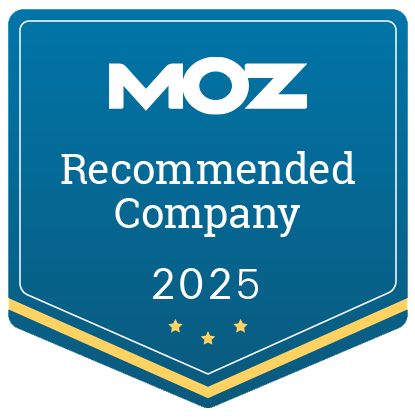If you’ve been working in digital marketing for a while, you might be wondering exactly when you’ll start to see results from your efforts. You may even be studying the analytics reports, trying to determine what you’re doing wrong.
But you’re probably not doing anything wrong at all. Perhaps you just need to be a bit more patient because seeing results from digital marketing takes time – sometimes months to over a year. So don’t give up if you do not see the return on your investment (ROI) right away. Instead, focus on what you can do to improve your performance and think about the factors that can affect your results.
Moreover, it’s important to understand and get realistic expectations on how long it typically takes to see results from digital marketing. That way, you can better understand whether your timeline and your current performance make sense.
Measuring incremental improvements will help you in ensuring you’re on a path to hit your goals. For example, measuring improvements in your organic search rankings help in feeling confident that organic search traffic and sales (or leads) will improve soon.
Here’s how long it could take to see results with the different facets of digital marketing – content marketing, search engine optimization (SEO), Pay-Per-Click (PPC), and paid social.
- Content Marketing
- Search Engine Optimization
- Pay-Per-Click and Paid Social
- Factors That Can Affect Results
Content Marketing
Typical Timeline: 6-12 months (when done consistently)
Content marketing involves finding organic ways to bring in traffic through “content,” which can be anything from blog posts to eBooks, whitepapers, and more. But because it’s organic, it can take some time to build your audience, credibility, and loyalty with content marketing.
However, once you’ve got all of your distribution channels set up and you’re creating quality content consistently, you’ll start to pick up steam and gain traction. By that time, it’ll be easier to get noticed by your target audience.
Pro Tip: Create a variety of content, such as eBooks, whitepapers, case studies, tutorials, and blog posts. And use a mix of media, such as images, videos, infographics, quizzes, and polls.
Search Engine Optimization
Typical Timeline: 3-6 months
The goal of SEO is to help you boost your search engine ranking and reach more customers. Approximately 93% of online experiences begin with a search engine, and the industry is worth over $80 billion. When done the right way, SEO can offer a 14.6% conversion rate. So if you’re looking to add SEO to your digital marketing strategy, you’re headed in the right direction.
However, SEO results aren’t immediate (unlike Pay-Per-Click). It’s more of a long game, so while it might seem like things aren’t working for you in the beginning, you just need to give it some time. It takes Google a while to figure out:
- What search intent your page caters to.
- How many backlinks you have on your website.
- What images are on your site.
- How reliable and trustworthy your information is.
- Who to serve your content to.
Pro Tip: Focus on long-tail keywords (longer search phrases) especially when you’re first getting started because they’re more specific and attract more relevant traffic.
Pay-Per-Click and Paid Social
Typical Timeline: Instant results, but may take about 3 months to see the full impact. Over time testing is performed and the campaigns are optimized and so the results do improve.
Paid social and PPC are a whole other ball game, but they can both generate lots of revenue (or leads) for you and your business if you leverage them the right way. Both options can help increase brand awareness, web traffic, and profitability. But of course, you’ll need to pay to see results.
Leveraging PPC and paid social can be great ways to draw traffic to your website and get your audience engaged with your content and your brand. With PPC, you’ll be able to analyze multiple data resources and get the best possible insight and recommendations.
And while organic traffic is great, paid social allows you to improve your reach by implementing strategic advertising campaigns on social media. Since these two options are a bit more complicated to pull off, it’s recommended that you work with a team of experts to help you analyze data and track which methods are working.
Pro Tip: Paid social can be a useful tool for testing different approaches and variations before running your ads through more expensive avenues.
Factors That Can Affect Results
Since every company and marketer is different, your results might not compare to someone doing the same things as you. You don’t sell similar products (or provide the same services), and even if you do, your brand identity is completely different.
These are the main factors that will affect your digital marketing results:
Your Budget
One of the main things that can affect your digital marketing ROI is your budget. If you don’t have a big marketing budget, your results might not be the same as a company that does.
For instance, brands that can afford a huge PPC campaign may see more immediate results. But if your budget only allows mostly organic campaigns, it might take longer to get the results you want. So figure out how much you can spend on marketing and then divide it up among the marketing activities you want to do with a plan to weight the budget towards the channels that you believe will provide the best results.
Over time, you might want to adjust your budget to the platform that’s working best for you. For example, if Facebook performs better, you might find it necessary to shift your budget to 75% Facebook and 25% Pinterest.
Your Focus (Marketing Channels, SEO, etc.)
The channels and approaches you focus on will significantly affect your digital marketing efforts, too. For example, if you choose a channel like Facebook, but your target audience is Gen Z, you won’t find much success because most of Gen Z is on Snapchat, Instagram, and Tik Tok.
That’s why you need to know who your target audience is and where they hang out online. Then, focus your efforts on those channels so you can get the most out of your investment.
Your Content
Content will affect your digital marketing efforts more than anything. If you don’t have content that resonates with your target customers, you simply can’t win the game.
That’s why it’s worth putting in the effort to create useful, high-quality content that people respond and relate to. Use their lingo, talk about things that matter to them, and above all, let them know you’ve got the solution to their problems by providing a clear call to action.
Pro Tip: Repurposing content can increase organic traffic by 106%. So focus on taking your best-performing content and creating something new from it. For example, you could take the content from an email course and create an eBook out of it, or you could turn a blog post into a video.
Ready to See Your Digital Marketing ROI?
The benefits of digital marketing can’t be emphasized enough. Getting results from your digital marketing efforts like content marketing and SEO might seem like a snail’s race. But the fact is, you can start seeing results pretty quickly if you’ve got the right combination of tools and resources. Need help with your digital marketing strategy? Our team of experts is here to help.









